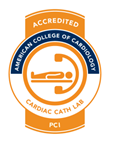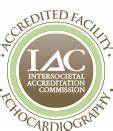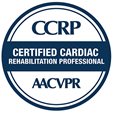Our Heart Health Testing team of professionals provides exceptional care during non-surgical procedures to diagnose and evaluate heart disorders. We provide fast and effective, patient-centered care during emergencies, striving for successful patient outcomes.
Learn what happens in our Cardiac Cath Lab and about our accreditations in this short video with Jessica Sutherland, MD, interventional cardiologist:
Accreditations:

Cath Lab: Recognized by the American College of Cardiology

Echo: Recognized by the Intersocietal Accreditation Commission

Cardiac Rehab: Recognized by the American Association of Cardiovascular and Pulmonary Rehabilitation
While recovering in the hospital from a heart attack, patients and their families receive education about the heart disease, risk factors, and methods to manage it. Low-level activities are performed with rehab specialists on an individual basis if necessary. A consult with a registered dietician provides nutritional counseling about heart-healthy eating habits and food choices.
Learn More >
Services and Procedures Performed at the Heart Health Testing Center at Exeter Hospital
Learn More >
Services and Procedures Performed at the Heart Health Testing Center at Exeter Hospital
Learn More >
Related Health Information